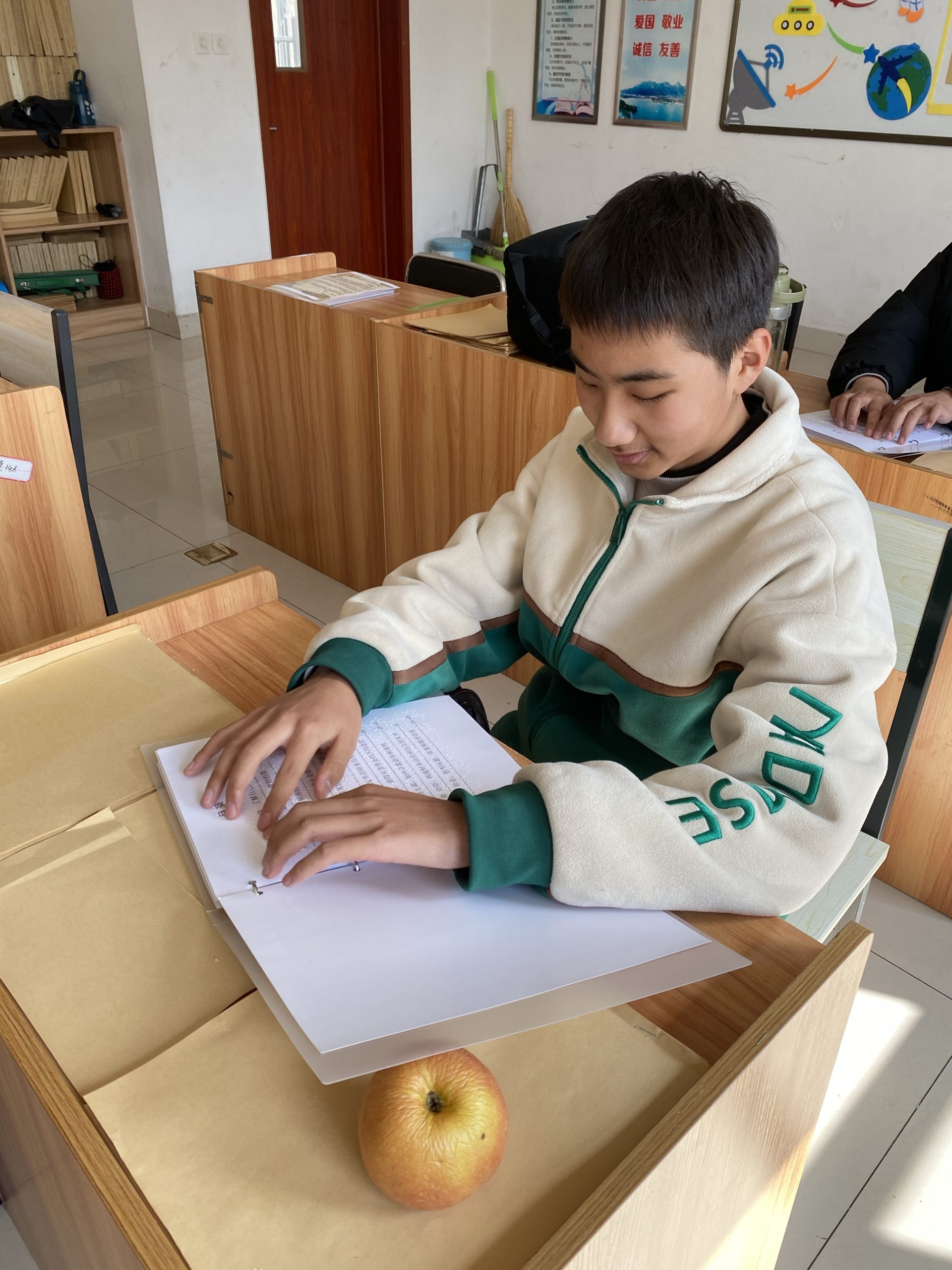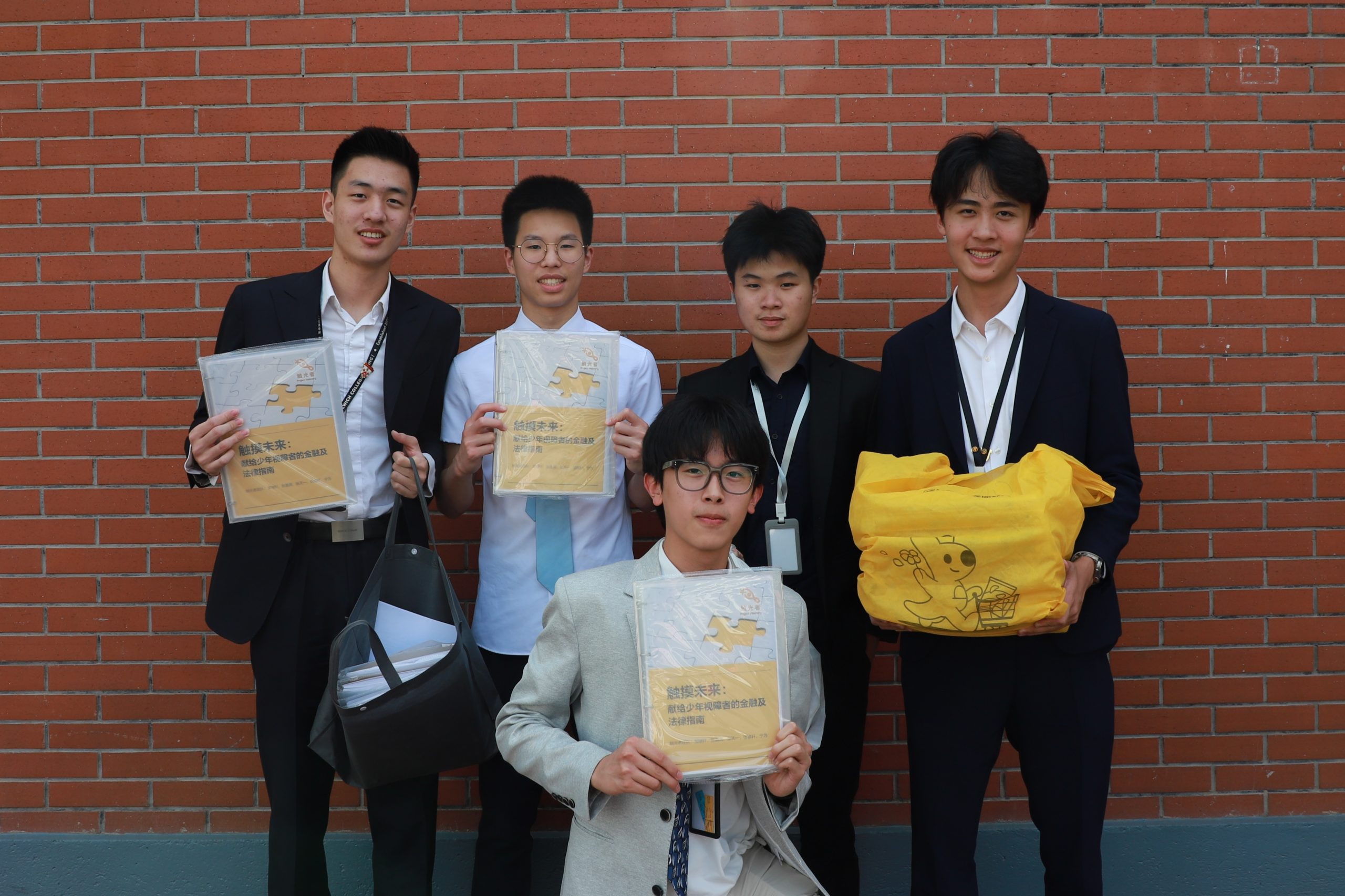In a city as vibrant and dynamic as Beijing, it’s no surprise that its youth are equally remarkable. Our new series, “Outstanding Teens of Beijing,” shines a spotlight on the city’s most inspiring young individuals. From self-motivated business owners to those who have started well-recognized clubs and organizations, these kids are making significant impacts in their communities. Join us as we share their stories, celebrate their achievements, and learn from their incredible dedication and passion.
This time we’re honored to share the story of five students from Dulwich College Beijing (DCB) who did exactly what DCB has always encouraged their students to do – to think outside of the box and to become leaders in their community. Tim Z., Ethan N., Jason Z., Kaion Z., and Jayden N. are the founders of Project Visionary, a non-profit organization currently within DCB that’s dedicated to bettering the lives of visually impaired teens in China. The group is working to expand and register Project Visionary as a nationally recognized organization.

It all started when this group took part in a competition called China Thinks Big (CTB), a national research and innovation competition for high school students that provides an opportunity for students around the country to demonstrate their intellectual creativity by tackling a societal issue of choice posed by Harvard professors and representatives from other top institutions. The competition is judged by the Harvard Association for U.S.-China Relations, a Harvard-based student organization, and has over 10,000 participants take part in the challenge to share their intellectual creativity to tackle important societal issues. Some past projects have been impactful as well, influencing local policy, garnering wide media coverage, becoming case studies in some Chinese college entrance exams, and even being adopted as bills in the provincial People’s Congress.
The DCB team decided to focus their project on a very specific group of people with a much-needed goal in mind – financial literacy for visually impaired teens.
“Initially, we wanted to focus on visually impaired workers regarding financial literacy. However, after a preliminary interview that we did with a visually impaired worker, we realized that it might be not as effective if we focused on an older demographic, as they were somewhat hesitant to share their experiences due to fear that they might face consequences from their employers for speaking out. Thus, we decided that we should focus on high school students with visual impairments instead, as we could educate them before they entered the workforce, providing them with sufficient knowledge to avoid workplace exploitation. Furthermore, we identified a gap in accessible financial education for this age group. By focusing on teens, we aimed to create lasting impacts before they enter adulthood,” the team shares with jingkids.
 The team created the book Grasping Future: A Financial and Legal Guide for the Visually Impaired Youth. In nine chapters, the team utilized several Chinese-to-braille programming translators and based the content on the needs they identified in their primary research and advice they received from Beijing Hongdandan, a local charity that provides cultural programming services and advocacy for the visually impaired. “The book was approved by Beijing Hongdandan and teaches basic skills such as budgeting, differentiating needs and wants, financial goals, how to get microloans in case of an emergency, and more. It’s all very basic skills but crucial for teens transitioning into society,” says the team.
The team created the book Grasping Future: A Financial and Legal Guide for the Visually Impaired Youth. In nine chapters, the team utilized several Chinese-to-braille programming translators and based the content on the needs they identified in their primary research and advice they received from Beijing Hongdandan, a local charity that provides cultural programming services and advocacy for the visually impaired. “The book was approved by Beijing Hongdandan and teaches basic skills such as budgeting, differentiating needs and wants, financial goals, how to get microloans in case of an emergency, and more. It’s all very basic skills but crucial for teens transitioning into society,” says the team.
Teaming up with Beijing Hongdandan, the team conducted surveys and interviews with over 800 members of the general public. Their research showed that over 60 percent of the people that they interviewed agreed that the rights of visually impaired individuals in financial laws were indeed a neglected gap that needed to be filled, with 70 percent agreeing that a braille handbook on financial literacy and labor laws for the visually impaired was essential.
 The team also discovered through interviews with over 400 visually impaired invidiauals that nearly 80 percent lacked an adequate understanding of financial laws, while over 72 percent shared the unfair treatment that they have received in their places of employment due to a lack of understanding of what their rights are.
The team also discovered through interviews with over 400 visually impaired invidiauals that nearly 80 percent lacked an adequate understanding of financial laws, while over 72 percent shared the unfair treatment that they have received in their places of employment due to a lack of understanding of what their rights are.
Thus, the team’s goal became even more laser-focused. Project Visionary aims to empower visually impaired teens by providing them with the tools and knowledge necessary to make informed financial decisions and avoid future exploitation due to disability. They help teens by offering resources like braille guidebooks and podcasts that cater to their specific needs. There is a significant need for such resources due to the limited availability of tailored financial education for visually impaired individuals, specifically visually impaired teenagers. Creating the braille guidebook involved extensive research, collaboration with braille experts, and integrating feedback from visually impaired individuals. It took a lot of commitment and dedication from the team members.
 Grasping Future: A Financial and Legal Guide for the Visually Impaired Youth is now distributed across 20 schools in China, reaching over 500 visually impaired students. To reach even more teens, the team has also launched a podcast to discuss the topics found in the braille guidebook, including topics such as financial basics, legal rights, and exploitation prevention. The book has been well-received, providing an accessible learning platform for the visually impaired community who prefer auditory resources.
Grasping Future: A Financial and Legal Guide for the Visually Impaired Youth is now distributed across 20 schools in China, reaching over 500 visually impaired students. To reach even more teens, the team has also launched a podcast to discuss the topics found in the braille guidebook, including topics such as financial basics, legal rights, and exploitation prevention. The book has been well-received, providing an accessible learning platform for the visually impaired community who prefer auditory resources.
So what’s next for these young visionaries who are out to change the world? “In the next five years, we envision expanding Project Visionary’s reach nationwide, developing more resources, and forming partnerships with additional organizations and even other schools to enhance our impact and sustainability. Currently, we are preparing to present at the Special Education Network and Inclusion Association (SENIA) international conference in November, which will be a great opportunity to increase awareness about our project. However, as we are all seniors in our final year of high school, we will be passing down our organization to a younger leadership team next year. This will ensure that our project can continue even after we leave for college.”
To tune in to the next podcast from the Project Visionary team, scan the QR code on the poster below.
Inspired? We know we are! If you’re a teen with an incredible achievement, let us know! Get in touch with Mina Yan via email at minayan@beijing-kids.com or on WeChat (ID: Wilhelmina87).
Images: Project Visionary




